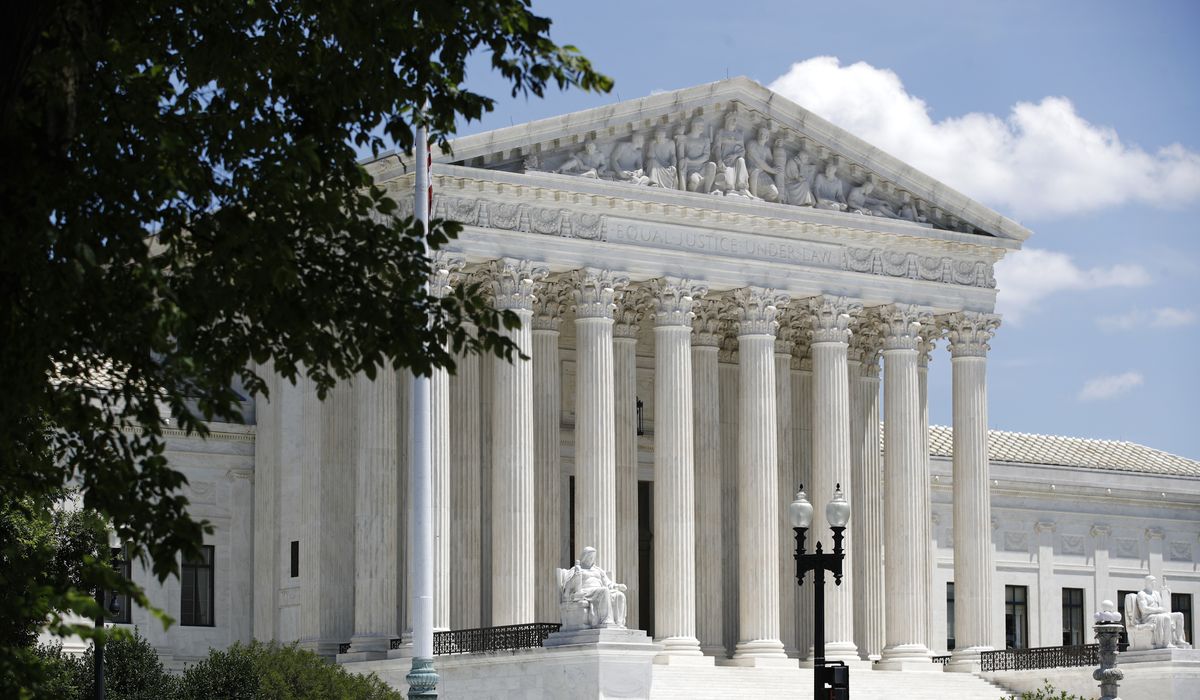Supreme Court rules Alabama’s one Black congressional district violates Voting Rights Act

The Supreme Court ruled Thursday that Alabama can’t use its congressional map with only one majority Black district, reasoning it was likely a discriminatory racial gerrymander that runs afoul of the Voting Rights Act.
The 5-4 ruling sends the issue back to the state to redraw its congressional map, which had been allowed to be used in the 2022 midterm elections.
Chief Justice John G. Roberts Jr. wrote the court’s majority opinion, reasoning that the state’s congressional map has remained mostly the same for three decades despite population growth.
The court found that the Black voters who challenged the map, arguing for a second majority Black district, provided other examples of how the state’s lines could be reasonably drawn.
“We agree with the District Court, therefore, that plaintiffs’ illustrative maps ‘strongly suggest[ed] that Black voters in Alabama’ could constitute a majority in a second, reasonably configured, district,” Chief Justice Roberts wrote.
He was joined by Justice Brett M. Kavanaugh and the court’s three Democratic appointees: Justices Elena Kagan, Sonia Sotomayor and Ketanji Brown Jackson.
The state took the legal battle to the Supreme Court after voting rights advocates charged that Republican lawmakers packed Black-dominated areas into a single district to dilute their representation.
Black people make up 27% of Alabama’s population but are the majority in only one of the state’s seven House districts.
A three-judge panel had struck down the map, which had been redrawn after the 2020 census.
The lower court directed the state to create a new map that has two majority-Black districts.
The state had maintained that its map was drawn without using race as a factor and forcing the state to make a new map at the lower court’s direction would force it to inject race into the redistricting process.
The high court, though, dismissed those concerns in Thursday’s ruling.
The practice of gerrymandering — drawing maps to benefit the party doing the line-drawing — has faced partisan and racial challenges for decades.
While the centuries-old practice has been used by both parties as control of state legislatures has permitted, Republican-dominated Alabama has one of the most gerrymandered maps in the U.S., according to The Associated Press.
The Voting Rights Act ensures that communities of color can elect a representative of their choosing, but when communities of color have their vote diluted, whether by being scattered into different districts or by being packed into as few as possible, that can run afoul of the federal law.
